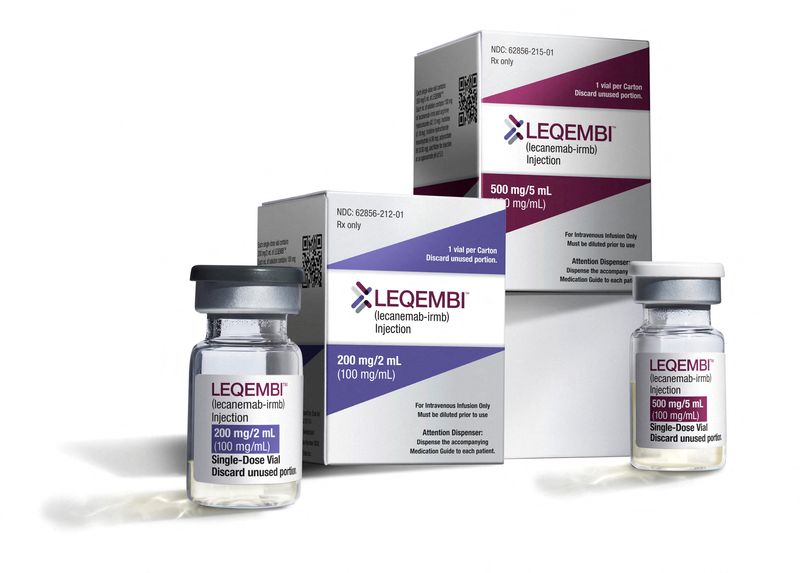New Alzheimers drug deemed too costly for UK’s state-run health service
2024.08.22 07:18
(Reuters) -Alzheimer’s patients in Britain’s state-run health service are unlikely to get access to Eisai and Biogen (NASDAQ:)’s new Leqembi drug, after it was approved on Thursday by the country’s regulator but deemed too expensive for wide use.
The Medicines and Healthcare products Regulatory Agency said the drug, also known as lecanemab, is the first treatment for Alzheimer’s licensed for use in the country “that shows some evidence of efficacy in slowing progression of the disease.”
But in draft guidance published simultaneously, the National Institute for Health and Care Excellence (NICE) said the medicine’s high cost and need for intensive monitoring for side effects “means it cannot be considered good value for the taxpayer”.
The UK cost effectiveness body’s findings mark the latest blow faced by the drugmakers amid slow take-up of the drug in the U.S. due to the cost and concerns over side effects and efficacy.
It also highlights the complexities of a new class of drugs that benefit early-stage Alzheimer patients but carry the risk of rare and serious side effects.
The therapy for early Alzheimer’s disease has been approved in the United States, China, Hong Kong, Israel, Japan, South Korea and the UAE.
But last month the European Union’s drugs regulator rejected the drug, saying the risk of serious brain swelling did not outweigh its small impact on slowing cognitive decline.
The companies said then that they would seek re-examination of the recommendation, but did not disclose what information they would provide the regulator.
The infusion, given twice a month, removes sticky clumps of protein amyloid beta from the brain, believed to be a hallmark of Alzheimer’s disease.

It has been associated with serious side effects for some patients, including brain swelling and bleeding or microhemorrhages.
Leqembi treatment is priced at $26,500 a year in the U.S. In Britain, the NICE draft guidance stated that the price is confidential until published by the UK’s Department for Health and Social Care.








